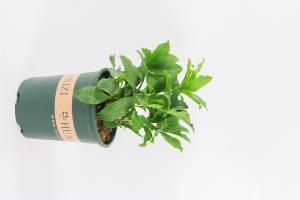Can You Use Pool Water on Plants?
Pool water is often considered to be highly chlorinated and chemical-laden. This raises the question of whether pool water can be used on plants. Let's explore this issue in detail.
The Impact of Chlorine
Chlorine is added to pool water to disinfect it and kill any bacteria or viruses present. However, chlorine is also toxic to plants and can cause damage if used in excessive amounts. The amount of chlorine in pool water can vary greatly depending on the type of pool and the treatment methods used.
While small amounts of chlorine may not cause any significant harm to plants, high levels can be dangerous. Chlorine can interfere with a plant's ability to absorb nutrients and water, leading to stunted growth and possible death. In addition, chlorine can damage plant leaves and roots, making them more susceptible to disease and insect infestations.
The Chemical Composition of Pool Water
In addition to chlorine, pool water contains other chemicals such as algaecides and pH balancers. These chemicals can also have a negative impact on plants. Algaecides, for example, are designed to kill algae and can be toxic to other forms of aquatic life, including plants.
Similarly, pH balancers are used to maintain the acidity or alkalinity of pool water. If the pH levels are too high or too low, it can affect plant growth and cause soil to become too acidic or alkaline. This can make it difficult for plants to absorb essential nutrients and water.
Alternative Uses of Pool Water
While pool water may not be suitable for use on plants, there are other ways to recycle or repurpose it. One option is to use the water to clean outdoor surfaces such as sidewalks, patios, and decks. Pool water can also be used to refill a swimming pool, which can save significant amounts of water during the summer months.
Another option is to use a pool cover to reduce evaporation and prevent debris from entering the water. This can reduce the need for chemicals and make it easier to maintain a healthy pool environment. By using these methods, you can conserve water and reduce the impact of pool water on the environment.
The Bottom Line
While it may be tempting to use pool water on plants, it is not recommended due to the high levels of chlorine and other chemicals present. Instead, consider alternative uses for pool water or invest in a system that recycles and filters the water for safe reuse. By being mindful of the impact of pool water on the environment, we can make more sustainable choices and protect our planet.

 how many times do yo...
how many times do yo... how many planted tre...
how many planted tre... how many pine trees ...
how many pine trees ... how many pecan trees...
how many pecan trees... how many plants comp...
how many plants comp... how many plants can ...
how many plants can ... how many plants and ...
how many plants and ... how many pepper plan...
how many pepper plan...
































